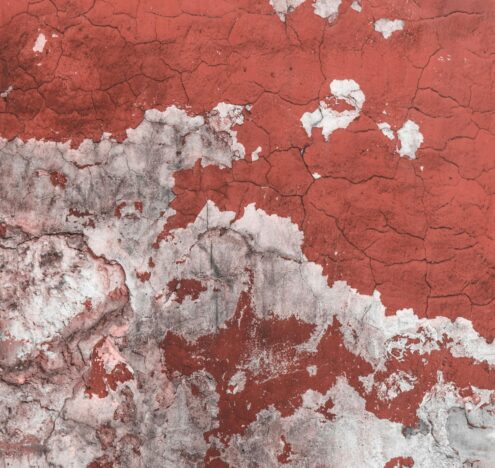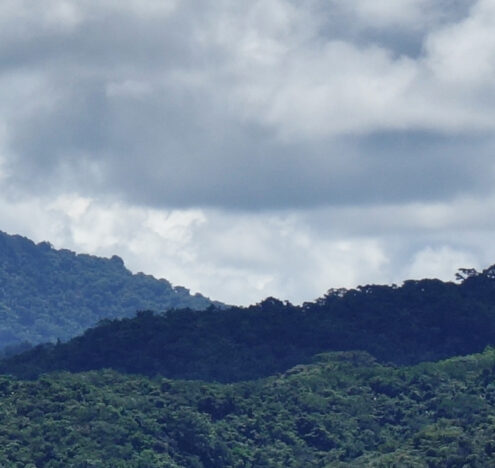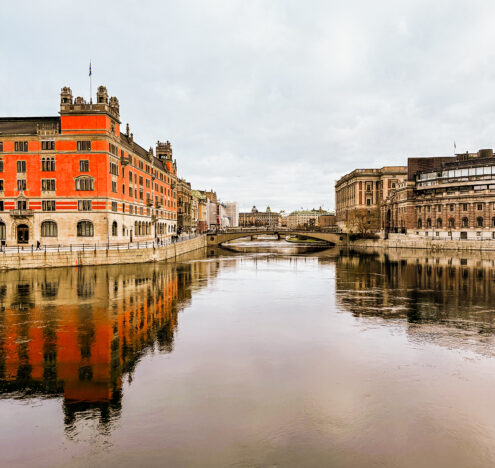On the morning of Feb.1, 2023, Jassim al-Assadi was making the 60-mile drive from the central Iraqi city of Hillah to Baghdad with his cousin. Al-Assadi, a prominent environmentalist described by one colleague as the “godfather of environmentalists in Iraq” and a leading voice on protecting Iraq’s southern marshes, a UNESCO heritage site, had meetings with Iraqi officials and plans to meet Iraq’s Minister of Water Resources the next day.
Al-Assadi never made the meetings. On the highway to Baghdad, al-Assadi’s car was stopped by two vehicles. Armed men, wearing plain clothes, emerged from the cars and took al-Assadi. They handcuffed him and forced him into one of their vehicles. Al-Assadi’s cousin was left on the side of the road a little over three miles from Baghdad.
Over the next two weeks, al-Assadi was allegedly moved between multiple facilities and underwent, in his own words, “the most severe forms of torture” using “electricity and sticks.” On Feb. 16, 2023, al-Assadi was released. Looking battered and morally defeated, he gave a public statement. In late February, he left Iraq to join his colleague Dr. Azzam Alwash in Amman, the capital of Jordan.
The day al-Assadi left Baghdad for Amman, Alwash, a winner of the Goldman Environmental Prize and founder of the environmental conservation group Nature Iraq who grew up near the marshes, spoke to Inkstick by phone. When asked if environmental activism in Iraq is more dangerous than before, Alwash paused, picking his words carefully. “Absolutely.”
“I am self-censoring as I speak to you,” the environmentalist, who fled Saddam Hussein’s regime in 1978 to avoid joining the Ba’ath party, said. “Not for my own protection, but for the protection of people who work with me and the people who are in the field. [I’m] not [able to] speak the complete truth.”
Al-Assadi’s kidnapping is the latest in a series of acts targeting Iraq’s environmentalists. Armed groups and government officials have harassed, threatened and even arbitrarily detained environmentalists, according to a recent report by Human Rights Watch. After his kidnapping, al-Assadi’s brother told Human Rights Watch that government backers opposed his environmental work, much of which focuses on the marshes.
A Collapsing Ecosystem
Iraq’s marshes are a wetland of nearly 14,000 miles in the country’s south. The ecosystem is fed from the northeast by the Euphrates and Tigris rivers and stretches into southwest Iran. For generations, Iraqi tribes in this unique ecosystem in the Middle East reared fish and water buffalos that provide milk, cheese, and a local delicacy called “geymar.” The locals hand built their homes using water reeds and would move from place to place via a long, narrow canoe called “mashoof.”
Until now, protests haven’t inspired the Iraqi government to implement solutions. Instead, experts say, the government has linked all water scarcity to the issue of climate change.
In 1991, an uprising began against the ironfisted rule of Iraq’s dictator Saddam Hussein. Many who joined the uprising fled to the southern marshes to avoid repercussions from Hussein’s brutal regime. In order to smoke them out, Hussein diverted the Tigris and Euphrates Rivers, burned beds of reeds, and poisoned the lagoons. The marshes would stay dry until 2003, when Alwash led a group of armed men to reopen the water flow into the marshes, environmentalists from Nature Iraq told Inkstick.
Today, during good times, the water may reach close to two meters high in some parts. But in 2015, it dropped to an all-time low of 40 centimeters. In early March 2023, the water was at 90 centimeters. But locals said the brutal heat of the summer months, where the temperature reaches as high as 125°F, will bring the water levels even lower. Saddam is long gone. But the marshes continue to suffer under a new regime.
The Middle East and North Africa is the most water-scarce region in the world, according to UNICEF. A report from the International Organization for Migration found Iraq to be the fifth-most vulnerable country to climate change, which could have damning consequences for the country. Agriculture is the country’s third largest source of employment and the largest employer for the country’s rural population, according to the International Labor Organization. It is also an important source of employment for Iraqi women.
One in 15 Iraqi households saw a family member forced to migrate from drought-affected areas, according to a 2021 study by the Norwegian Refugee Council, while an International Organization for Migration study from the same year found that poor water quality internally displaced around 20,000 people. Many more have fled Iraq altogether. The worst cases ended with serious repercussions for the migrants. In 2021, forced migration kicked off an international crisis when a few thousand Iraqis flew to Belarus and claimed they were forced to attempt crossing into Poland. At least 11 people died from the grueling winter conditions.
In the marsh region in particular, more than 50 families have left for other cities. Most people who spoke to Inkstick said the majority went the four-hour drive northwest to the city of Karbala, though others are spread out in other cities as well. As the marshes lose inhabitants, many of those who have chosen to stay in the region are at their breaking point.
Earlier this month, in the marsh region of Hammar, about a two-hour drive from Basra in southeast Iraq, a group of protesters blocked a main road with fire-blazing tires. Thick smoke carried off over the once lush, green vegetation, now turned yellow from the lack of water.
On the outer edge of the protest, a man with a gray beard and wearing a black and white headdress, called a ghutra in Iraq, stood with his hands behind his back. “The water is dirty and there is no drinking water,” resident Abeid Sadeq, 60, said. He said this was the first protest the men of the area had staged even though they’d been struggling to receive water for a full year. Many in the protest pointed to a nearby water tower, claiming the government had water but chose to withhold it.
As the fire burned, a group of policemen watched from the periphery as young men began dancing in circles, chanting “even salt water isn’t available.”
Protests in Iraq over water are not unprecedented. And with the situation rapidly deteriorating and harsh summer months approaching, the Iraqi government can anticipate more in the marshes as well as around the country. Until now, protests haven’t inspired the Iraqi government to implement solutions. Instead, experts say, the government has linked all water scarcity to the issue of climate change.
“While I am sure that climate change has an effect, I can also recognize that climate change has become an easy excuse as if this is an act of God that is beyond our people,” Alwash said. “The underlying problem in Iraq is the fact that all government policies are reactive, not proactive.”
Pointing Fingers
All the experts and activists that spoke to Inkstick said that while the world’s changing climate will undoubtedly impact Iraq in the years to come, the Iraqi government has plenty it can do to mitigate the damage and better serve people living in Iraq.
“Iraq’s water management regime is based on flood management, not lack of water management, it’s not added weather management and it is because, in fact, we have had two generous wild rivers that used to literally sustain the life around the marshlands, the last good flood that we had in Iraq was in 1968,” Alwash said. “In other words, Sumerian methods that have been used forever, are now causing the death of agriculture, albeit slowly. The government however, acts as if there’s nothing wrong.”
Publicly, Iraqi authorities mostly blame neighbors Turkey. Many also blame armed groups affiliated with Iran, who are in control over the flow of water to fish farms and private farms in the area.
Even local government officials say they feel helpless. At the Department of the Marshes and Lands Projects in Nasriyah, a city four hours south of Baghdad by car, Director Adnan Abdallah Haidar sat at a large L-shaped desk lightly littered with paperwork. Behind him two Iraqi flags straddled a bookshelf filled with a few binders and more than half a dozen honorary plaques.
“I’m just a citizen,” Haidar, who oversees an office that reports to the Ministry of Water Resources, said repeatedly, citing his limited power and lack of funding. When asked why higher-ups were not moving to act on such pressing issues, he made a motion of the message going in one ear and out the other.
The government allegedly intervened to help al-Assadi released by his kidnappers. But Iraqi authorities have also done their fair share to suppress the work of environmental activists when bringing attention to “human rights breaches linked to the country’s environment and climate,” according to Human Rights Watch. Salman Khairalla, the co-founder and CEO of environmental nongovernmental organization Humat Dijlah (Protectors of the Tigris in Arabic) was arbitrarily detained in 2019 and Raad Habib al-Assadi of the Chibaish Organization said he has been repeatedly harassed by the country’s judiciary for criticizing the Water Resources Ministry’s poor decision-making.
Publicly, though, Iraqi authorities mostly blame neighbors Turkey.
Locals interviewed by Inkstick mostly directed their anger at the Iraqi government but also frequently cited Turkey, and the United States to a lesser extent, as responsible for the dire situation. One 32-year-old woman still living in a traditional water reed house common to the marshes, even said she wanted to “go fight Turkey” over the role they’ve played in draining the marshes and forcing many of her neighbors or family members to leave.
The Turkish government has constructed a series of 22 dams, including the world’s third-largest dam Ataturk, that has cut water flow to Euphrates and Tigris by half in the last 20 years, according to Iraqi officials. Iraqi and Turkish officials meet regularly to discuss a host of issues, including water, but come back without results.
“All these problems have solutions that are relatively easy to implement,” Alwash said. “What is lacking is the political will to implement the solutions.”
“Turkey is playing a dirty role in this issue but also we have to be clear about the role of Iran,” Khaled Sulaiman, an Iraqi environmental journalist, told Inkstick from his home in Montreal.
Iraq’s eastern neighbor, Iran, has also played a role in cutting water flow. Iran has been significantly involved in Iraqi politics since the 2003 US invasion and aligned with numerous militia groups. Multiple sources said armed groups, affiliated with Iran, are largely in control over the flow of water to fish farms and private farms.
In November 2022, a Human Rights Watch report from November 2022, named state-backed armed groups and state security officials as responsible for “killing, maiming, and disappearing hundreds of demonstrators and activists since 2019.” The report said Iraqi authorities had failed to hold the guilty parties accountable.
“People know this, however, it’s mutually beneficial for armed groups and local and federal politicians in the south,” Sulaiman said. “Any conversation about these armed men in connection to water is a dangerous conversation.”
Sulaiman, who regularly writes about Iraq’s environment and water crises, said any future trips to Baghdad would be taken with serious planning and consideration.
“I am scared, yes,” Sulaiman said. “I have a lot of fear.” While Sulaiman said Iraq’s environment is too important an issue to stop writing and speaking out on, he admitted that he’s picking his words with even more care than usual in his columns and on Twitter.
Khairalla, who was arrested in 2019 for his environmental work, fled Baghdad after his detention. He doesn’t share his current location. He’s rarely returned in recent years and when he does he takes severe precautions.
“No one knows when I’m coming or when I’m leaving home,” he told Inkstick via Zoom. “If you stay active in this work, you might be kidnapped or something will happen to you or your family.”
Khairalla will not stop his work either though. He sees the struggle to save the Iraqi marshes as part of a more regional fight against a deteriorating climate.
“This water does not belong to the Turkish or Iranian government,” Khairalla said. “It doesn’t belong to just the Iraqi, Turkish, Kurdish, Iranian or Syrian citizen. It belongs to all the citizens living in all of Mesopotamia. We are fighting for all this water.”





















